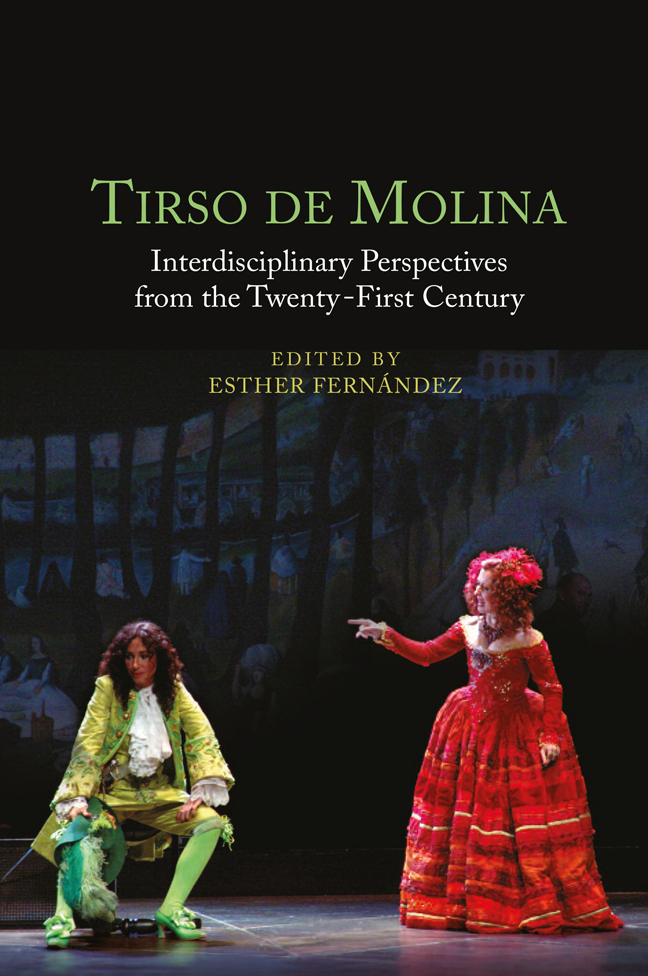12 - Tirso de Molina: Encounters with the New World
Published online by Cambridge University Press: 02 March 2024
Summary
Tirso de Molina wrote three plays related to the conquest of Peru and the Inca Empire. These three plays, written between 1626 and 1631 and published in 1635, are known as the Trilogía de los Pizarro [Pizarro Trilogy]. Tirso had the opportunity to meet the Pizarro descendants when he lived in Trujillo, Spain, after spending some time in the New World. It is commonly believed that the family paid Tirso to write the Trilogía de los Pizarro to celebrate the restoration of the Marquis of the Conquest title in 1631, which had been taken away after Francisco Pizarro died. Tirso’s Trilogía de los Pizarro, like the other few contemporary plays about the New World, aims to celebrate the heroes of the conquest. Each play focuses on one of the Pizarro brothers: Francisco in Todo es dar en una cosa [Give it Your All], Fernando in La lealtad contra la envidia [Loyalty against Envy], and Gonzalo in Amazonas en las Indias [Amazons in the Indies]. The goal of the plays is to clear the Pizarro name. This is why the plays focus more on their personal stories than their military achievements. The plays also address the Pizarros’ complex relationship with the Crown, insistently defending their loyalty to it to justify being returned the marquisate title.
These plays have captured some interest thanks to the recognition of their author. They are in the editio princeps (first print) of the Cuarta parte de las comedias del maestro Tirso de Molina [Fourth Part of the Comedies of the Master Tirso de Molina] of 1635. The next print appears in the press of Teresa de Guzmán, Madrid, 1736, followed by Ortega y Compañía’s print in Madrid, 1834, in four volumes of Comedias escogidas del maestro Tirso de Molina. Emilio Cotarelo y Mori edited two volumes of Comedias de Tirso de Molina, which included the trilogy in the first volume of 1906. Blanca de los Ríos edited Obras dramáticas in three volumes—the one that includes the trilogy is from 1958. María del Pilar Palomo edited 48 of Tirso’s plays in 1971 as Obras de Tirso de Molina. In 1988, Arturo Souto Alabarce’s edition of the trilogy appeared in Teatro indiano de los Siglos de Oro, an edition that was not dedicated exclusively to the trilogy but rather to all the theater related to the New World.
- Type
- Chapter
- Information
- Tirso de MolinaInterdisciplinary Perspectives from the Twenty-First Century, pp. 172 - 185Publisher: Boydell & BrewerPrint publication year: 2023



